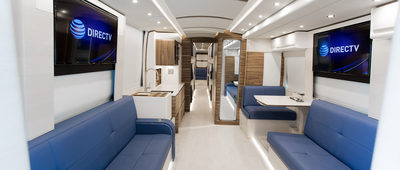JetBlue Airways' bid to buy Spirit Airlines to create the nation's fifth largest carrier may be a good deal for New York-based JetBlue, but how it will affect consumers will take longer to figure out.
The $3.8 billion deal, announced Thursday, comes at a frustrating time for U.S. travelers, who have been beset by flight delays and cancellations, caused by a shortage of pilots, flight crews, and aircraft. Having one less airline to choose from could seemingly exacerbate the problem.
But in what could be a boon for consumers, the deal gives JetBlue access to more planes. Should the deal be approved by regulators, the combined airline would have 458 aircraft with access to 300 more on order, according to a news release from JetBlue. Also in the works: a revamping of Spirit's planes by adding seatback screens and more legroom.
Still, more importantly, further consolidation in the airline industry, which is already concentrated, could mean higher fares for travelers. The presence of Spirit — an airline known for its low fares and bare-bones amenities — helps keep fares offered by more mainstream carriers, such as United and American, in check. Its disappearance could lead to higher fares across the country.
Some experts question whether the deal will pass muster with regulators, given the size of both airlines and what a merger of this magnitude could mean for the industry. An agreement to merge the airlines came as a surprise after Spirit rebuffed offers from JetBlue earlier this year to merge. Spirit instead opted to pursue a $6.6 billion deal with Frontier Airlines, another low-cost carrier. The plug was pulled on the deal just hours before JetBlue made its announcement to purchase Spirit.








